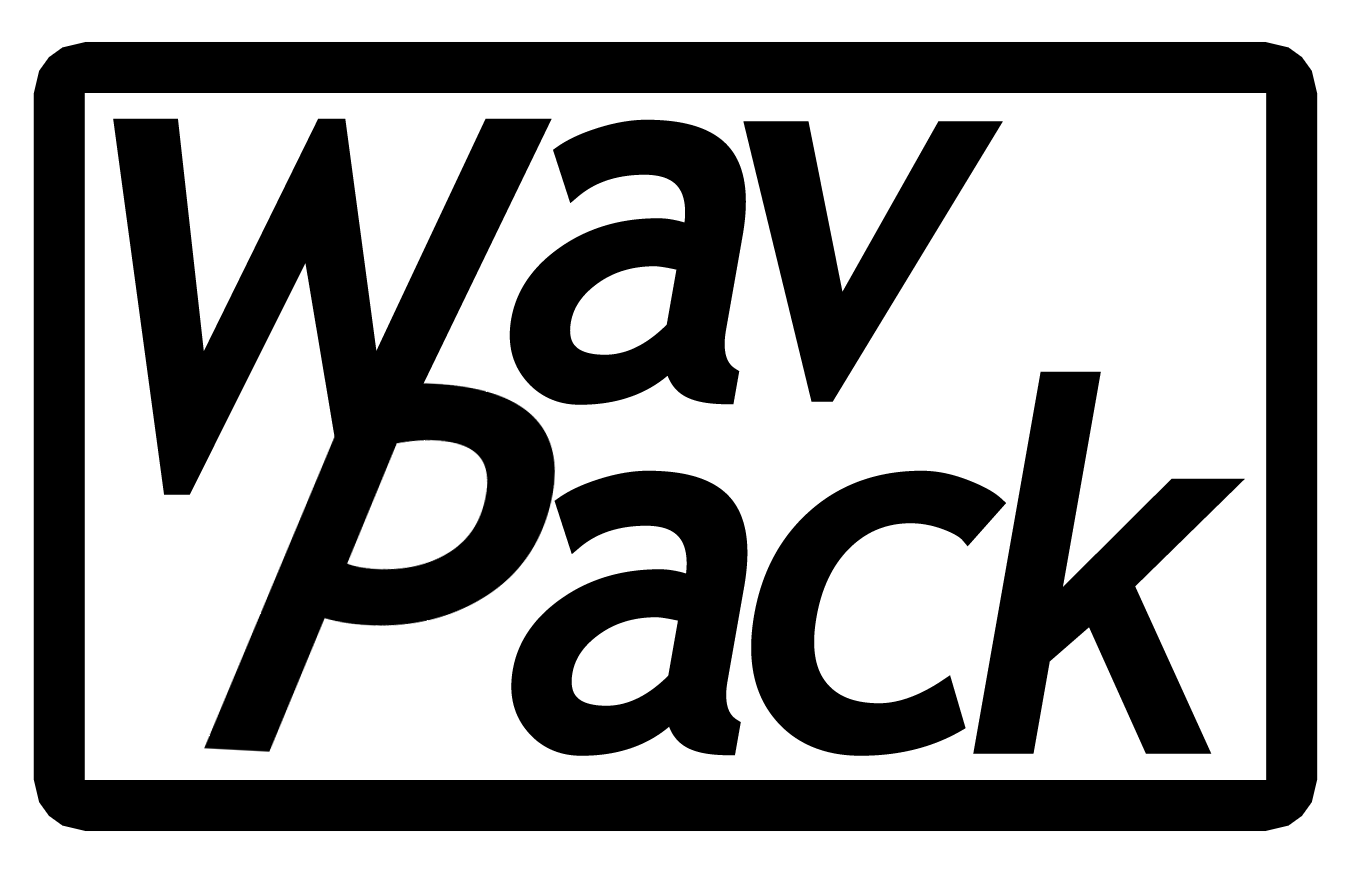Hybrid Lossless Wavefile Compressor
Copyright (c) 1998 - 2022 David Bryant.
All Rights Reserved.
Distributed under the BSD Software License.
This repository contains all of the source code required to build the WavPack library (libwavpack), the associated command-line programs, and a few example plugins.
Additional references:
Fuzzing & Build Status
| Branch | Status |
|---|---|
master |
|
master |
Branches actively built by TravisCI.
Building
Windows
There are solution and project files for Visual Studio 2019, and additional source code to build the CoolEdit/Audition plugin and the Winamp plugin.
The CoolEdit/Audition plugin provides a good example for using the library to both read and write WavPack files, and the Winamp plugin makes extensive use of APEv2 tag reading and writing.
Both 32-bit and 64-bit platforms are provided.
Linux
To build everything on Linux, type:
./configuremake- Optionally,
make install, to install into/usr/local/bin
If you are using the code directly from Git (rather than a distribution) then you will need to do a ./autogen.sh instead of the configure step. If assembly optimizations are available for your processor they will be automatically enabled, but if there is a problem with them then use the --disable-asm option to revert to pure C.
For Clang-based build systems (Darwin, FreeBSD, etc.), Clang version 3.5 or higher is required.
If you get a WARNING about unexpected libwavpack version when you run the command-line programs, you might try using --enable-rpath to hardcode the library location in the executables, or simply force static linking with --disable-shared.
There is now a CLI program to do a full suite of stress tests for libwavpack, and this is particularly useful for packagers to make sure that the C code and assembly language optimizations are working correctly on various platforms. It is built and a quick test is run with make check. Once the program is built then more extensive testing can be done with wvtest --default and there is also a seeking test. On Windows a third-party Pthreads library is required, so I am not including this in the build for now.
Assembly
Assembly language optimizations are provided for x86 and x86-64 (AMD64) processors (encoding and decoding) and ARMv7 (decoding only).
The x86 assembly code includes a runtime check for MMX capability, so it will work on legacy i386 processors.
Documentation
There are four documentation files contained in the distribution:
| File | Description |
|---|---|
| doc/wavpack_doc.html | Contains user-targeted documentation for the command-line programs. |
| doc/WavPack5PortingGuide.pdf | This document is targeted at developers who are migrating to WavPack 5, and it provides a short description of the major improvements and how to utilize them. |
| doc/WavPack5LibraryDoc.pdf | Contains a detailed description of the API provided by WavPack library appropriate for reading and writing WavPack files and manipulating APEv2 tags. |
| doc/WavPack5FileFormat.pdf | Contains a description of the WavPack file format, including details needed for parsing WavPack, blocks, and interpreting the block header and flags. |
There is also a description of the WavPack algorithms in the forth edition of David Salomon's book "Data Compression: The Complete Reference". This section can be found here: www.wavpack.com/WavPack.pdf
Portability
This code is designed to be easy to port to other platforms.
It is endian-agnostic and usually uses callbacks for I/O, although there's a convenience function for reading files that accepts filename strings and automatically handles correction files.
On Windows, there is now an option to select UTF-8 instead of ANSI.
To maintain compatibility on various platforms, the following conventions are used:
charmust be 8-bits (signedorunsigned).shortmust be 16-bits.intandlongmust be at least 32-bits.
Design
The code's modules are organized in such a way that if major chunks of the functionality are not referenced (for example, creating WavPack files) then link-time dependency resolution should provide optimum binary sizes.
However, some functionality could not be easily excluded in this way and so there are additional macros that may be used to further reduce the size of the binary. Note that these must be defined for all modules:
| Macros | Description |
|---|---|
NO_SEEKING |
To not allow seeking to a specific sample index (for applications that always read entire files). |
NO_TAGS |
To not read specified fields from ID3v1 and APEv2 tags, and not create or edit APEv2 tags. |
ENABLE_LEGACY |
Include support for Wavpack files from before version 4.0. This was eliminated by default with WavPack 5. |
ENABLE_DSD |
Include support for DSD audio. New for WavPack 5 and the default, but obviously not universally required. |
Note that this has been tested on many platforms.
Tiny Versions
There are alternate versions of this library available specifically designed for resource limited CPUs (i.e., portable devices).
There is the Tiny Decoder library which works with less than 32k of code and less than 4k of data, and has assembly language optimizations for the ARM and Freescale ColdFire CPUs. It is also the basis for a WebAssembly WavPack player on GitHub. The Tiny Decoder can be downloaded here.
The Tiny Encoder is also designed for embedded use and handles the pure lossless, lossy, and hybrid lossless modes. It can be downloaded here.
Neither of these versions use any memory allocation functions, nor do they require floating-point arithmetic support. Version of them appear in the Rockbox project.
Questions or comments should be directed to [email protected].
You may also find David on GitHub as dbry.

